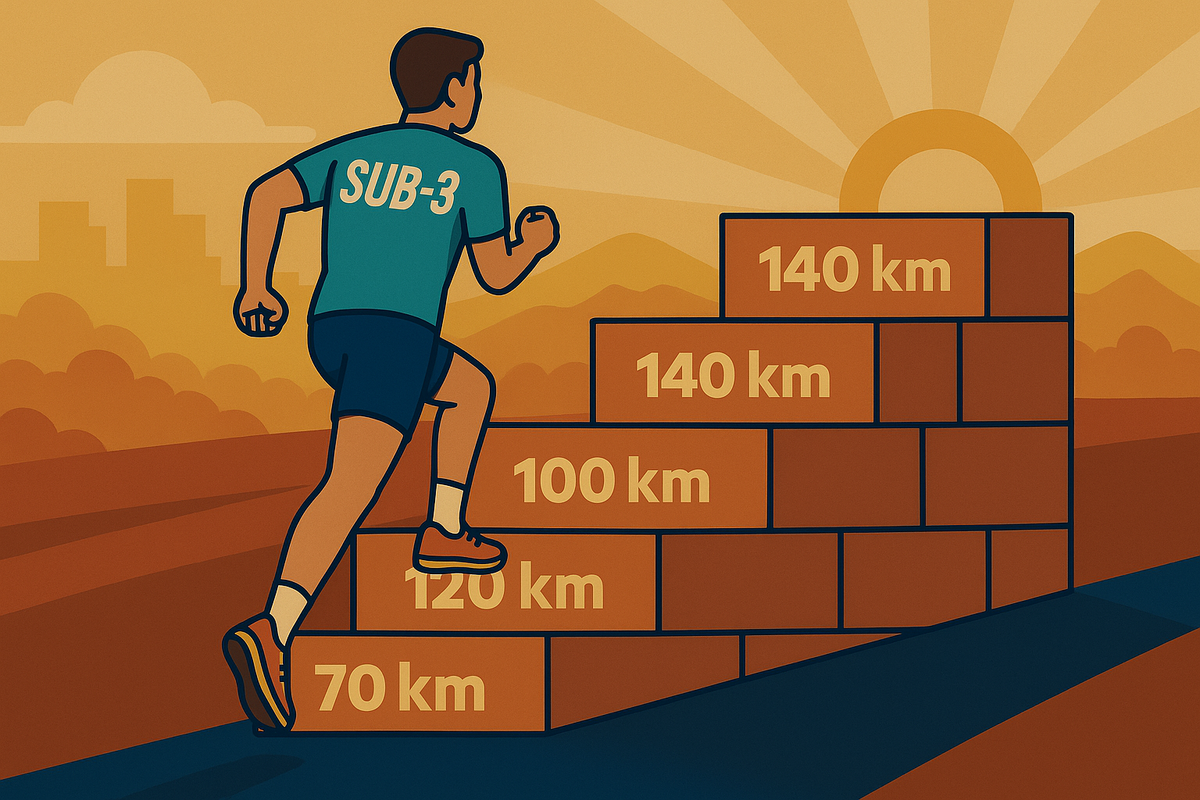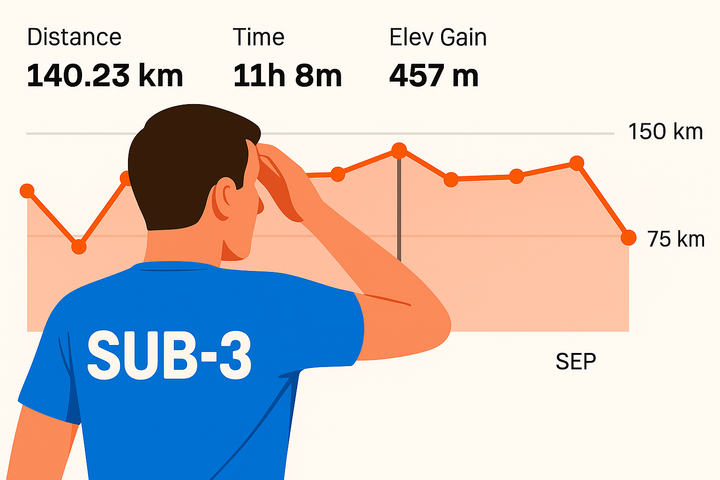What mileage should I run during my sub-3 training block?
What’s the right weekly mileage for sub-3? The evidence is clear: more miles, more often, produces better results. The key is finding what your body can handle.

Few topics stir more debate among sub-3 hopefuls than weekly mileage. For some, volume is the cornerstone of marathon fitness. For others, it’s a risky obsession best kept in check. But while training needs to be personal, the evidence leans firmly one way: the more you can run - safely and sustainably - the better your shot at breaking three.
Most runners fall into one of two broad camps. The minimalists aim to do just enough to perform, either to protect other areas of life or out of concern for injury and diminishing returns. The maximalists aim to rack up as many quality miles as they can - provided they can recover well and maintain consistency.
If you’ve got the time, experience and durability - and, let's admit it, motivation - the maximalist approach gives you a real edge. Many marathon blow-ups between miles 16 and 22 come not from a lack of toughness, but from a lack of volume. Your body simply hasn’t spent enough time on its feet.
Of course, maximalism has its limits. In The Long Hard Road, Ron Hill recalls pushing his mileage to 164 miles (264km) per week before the 1970 Fukuoka Marathon. “I was never really happy,” he wrote. “Towards the end of this increased training stint, I seemed to be doing nothing but changing in and out of running gear.” He placed 9th - and was devastated.
A more practical benchmark comes from Bob Glover’s New Competitive Runner’s Handbook, which recommends an 18-week block starting at 70 miles (112km), peaking at 80 miles (129km) for seven weeks, before a gradual taper. It’s a solid foundation for many. I personally went further during my last marathon cycle - seven consecutive 100+ mile (160+ km) weeks, maxing out at 200km. I stayed healthy, and ran a PB despite the heat in the London Marathon.
This might sound extreme, but it reflects a broader trend: more miles = better results. A 2016 Strava analysis of 4,000 London Marathon runners found that sub-3 finishers averaged:
- 42 miles (68km) per week across 7 runs
- 5 hours 22 minutes of total weekly training
- A peak week of 52 miles (84km), four weeks before race day
By comparison, 3–4 hour runners averaged just 27 miles (43km), and those finishing in over 5 hours averaged 14 miles (23km). Volume matters.
Tim Noakes, in Lore of Running, calls 120km per week the maximum he would target. “If I had my running career again,” he writes, “I would see what I could achieve by maintaining that training load for a few years.” Only after exhausting the potential of that volume would he increase speed training or consider adding distance. He also offers a warning: “The danger starts when you wish to train for more than 10 hours per week, equivalent to a training volume of 120 to 160 km per week for average and elite runners respectively. This is the point beyond which the law of diminishing returns begins - that is, more training produces progressively less benefit with the increasing possibility that you will start to perform worse than if you had trained less.”
In short: run as much as you can recover from. Mileage isn’t everything - but for sub-3, it’s probably the single most important ingredient. That doesn’t mean you should increase it recklessly. The old 10 percent rule is cautious, but if you’re experienced, it isn’t always necessary. I recently jumped from 60km to 120km in a single week after a race taper - and felt stronger, not weaker.
The goal isn’t to hit a round number for the sake of it. It’s to build aerobic depth, physical resilience, and confidence for the final 10K. If you can do that without breaking down, high mileage won’t just improve your fitness - it’ll transform your marathon.
Finding this useful? Help keep Sub-3 running — support us with a coffee.



